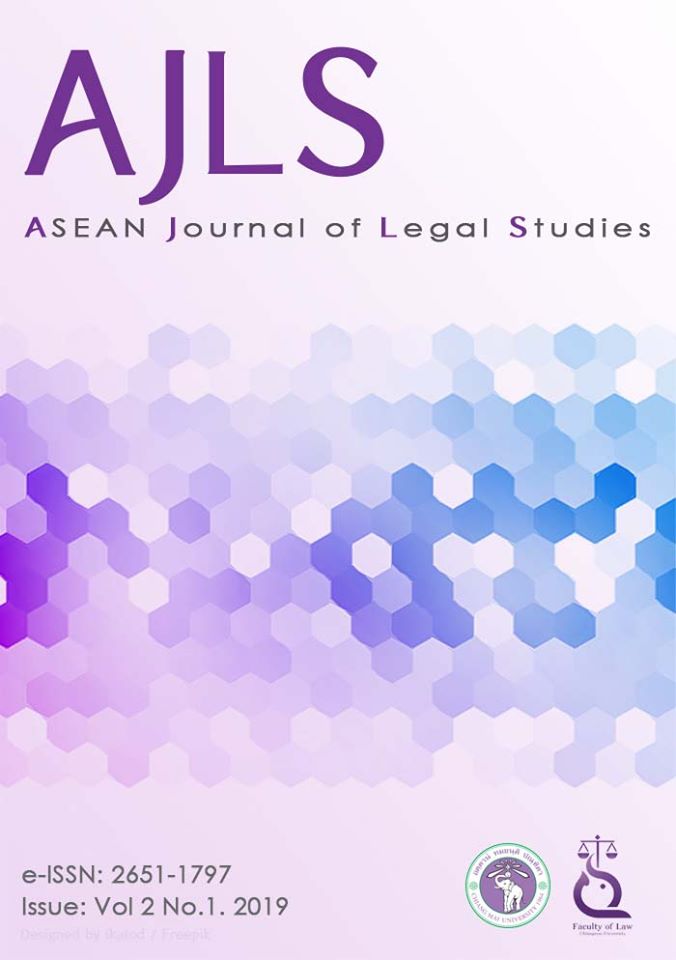REGULATION OF ALGORITHM-BASED PRICE CARTELS IN THE TAXI-ONLINE BUSINESS IN INDONESIA: QUO VADIS?
Main Article Content
Abstract
Digital economy is developing rapidly worldwide. New digital opportunities create new business opportunities like online taxi. The existence of online taxi in Indonesia is unavoidable because the developing of digital economy. Online taxi, like Grabcar and Gocar is operated its business through digital platform, such androids application (smartphone application). It makes customer easier to order and the rate of online taxi is cheaper than conventional taxi rate. The competition conventional taxi and online taxi is unavoidable. From the demand (consumer) side taxi online conventional taxi is in the same relevant market. They compete each other very fierce. The market share and income conventional taxi supposed decreased. The taxi online supposed doing price cartel. The question is how to determine that online taxi is occuring price cartel. This paper will attempt to analyze and provide feasible solutions concerning the regulation of Algorithm-Based Price Cartels in the Taxi-Online Business in Indonesia.
Article Details
Copyright in the manuscript and published article is held by the author(s). Authors are responsible for obtaining permission from copyright holders for reproducing any third party material in their articles (including illustrations, tables, or figures).
References
Bellis and Van Bael, Competition Law of the European Community, 5th Edition (Woulters Kluwer, Hague: 2010)
Jones, Alison. and Sufrin, Brenda., EU Competition Law: Text, Cases, and Materials 6th Edition, (Oxford University Press: 2016)
Lorenz,Moritz, , “An Introduction to EU Competition Law” ( Cambridge University Press, 2013)
Odudu, Okeoghene, “Hub and Spoke Collusion” in Ionnanis Lianos and Damien, Geradin, Handbook on European Competition Law: Substantive Aspects (Edward Elgar, Cambridge: 2013)
Peter, Krebs and Maximillian, Becker, Lexikon des Wettbewerbsrechts, (CH Beck, München, 2015)
Journals, Working Papers, Proceedings
Edelman, Benjamin and Geradin, Damien., “Efficiencies and Regulatory Shortcuts: How Should We Regulate Companies like Airbnb and Uber?” Stanford Technology Law Review 19 (2016)
Ezrachi, Ariel. and Stucke, Maurice E., “Artificial Intelligence & Collusion: When Computers Inhibit Competition”, University of Illinois Law Review (Vol. 2017, Number 5)
Ittoo, Ashwin and Petit, Nicholas, “Algorithmic Pricing Agents and Tacit Collusion: A Technological Perspective”. SSRN Journal (2017)
Komisi Pengawas Persaingan Usaha (KPPU), Artikel Kajian Persaingan Taxi di Indonesia (2016
Nowag, Julian, “UBER between Labour and Competition Law”, Volume 3 LSEU (2016)
Nurhidayah. Fitriyah, and Ficky,,Alkarim „Domination of Transportation Network Companies (TNCs) in Indonesia: An Indonesian Case“, International Journal of Business, Economics and Law, Vol. 12, Issue 3 (April)
Prasetyo Hardi and Sutopo Wahyu, „ Industri 4.0: Telaah Klasifikasi Aspek dan Arah Perkembangan Riset” Jurnal Teknik Industri, Vol. 13, No. 1, Januari 2018
Secretariat of the Organisation for Economic Co-operation and Development (OECD), Hearing on Disruptive Innovation, Issues Paper -- 16-18 June 2015 (Paris)
Silalahi, Udin, Competition Policy on Online Taxi in Indonesia, paper presented in 15th ASLI Conference in Soul, 10-11 May 2018
A. Ittoo and N. Petit, ‘Algorithmic Pricing Agents and Tacit Collusion: A Technological Perspective (October 2, 2017)’. https://ssrn.com/abstract=3046405 accessed on 12.10.2019
Statutes, Laws and Court Decisions
Bundesministerium der Justiz und Verbraucherschutz, German Act against Restraints of Competition (Gesetz gegen Wettbewerbsbeschränkungen), 2017
European Commission, Commission Notice on Guidelines on Vertical Restraints, {SEC(2010) 414}, Brussels
Personenbeförderungsgesetz in der Fassung der Bekanntmachung vom 8. August 1990 (BGBl. I S. 1690), das zuletzt durch Artikel 2 Absatz 14 des Gesetzes vom 20. Juli 2017 (BGBl. I S. 2808) geändert worden ist"
The Indonesian State Secretary, Law Number 5 Year 1999 concerning The Prohibition of Monopolistic Practices and Unfair Business Competition.
The Indonesian Ministry of Transportation, Peraturan Menteri Perhubungan Republik Indonesia Nomor 108 Tahun 2017 tentang Penyelengaraan Angkutan Orang dengan Kendaraan Bermotor Umum Tidak Dalam Trayek
Court of Justice of the European Union (CJEU), Case Case C-434/15 “Request for a preliminary ruling from the Juzgado Mercantil No 3 de Barcelona (Spain) lodged on 7 August 2015 — Asociación Profesional Élite Taxi v Uber Systems Spain, S.L.”
Internet-Based Writings
OECD Secretariat, “Hearings: The Digital Economy” (Paris, DAF/COMP(2012)22)
I-Scoop, “Industry 4.0: the fourth industrial revolution – guide to Industrie 4.0”,
Widyanita, „Potensi Ekonomi Digital Indonesia“
Fischer, et.al, “Biz Model for Uber Technologies Inc.”(13th April, 2015)
Gesley, Jenny “Legal Challenges for Uber in the European Union and in Germany”, EU Law Blogs, 14 March , 2016
Special Leased Transportation is a door-to-door transport service with drivers, has operating areas in urban areas, from and to airports, ports, or other transportation nodes and reservations using information technology-based applications, with the tariff rates listed in the application (Article 1 Number 7 PM No. 118 of 2018).
Special Lease Transportation Company is a legal entity or micro business actor or small business actor that provides Special Lease Transportation services (Article 1 number 8 PM No. 118 of 2018)
Special Lease Transportation Tariff is the applicable tariff paid by the User for the Special Lease Transport service provider based on an agreement through the application of information technology based on the upper limit and lower limit rates (Article 1 Number 15 PM No. 118 of 2018)


